Overcoming grief
Grief is a big word and very regularly is part of someones’ story in their something to work on with me.
There are what I’d call grief life events which are in more immediate awareness so are the main focus of grief immediately. I work with people who are working through the death of a loved one or grieving the loss of a relationship (another type of death).
Often too when people are just feeling conflicted, that sense that things aren’t quite right in their lives and we look back and explore the past as a way to be able to move on there can be the realization that relationships weren’t all we thought they were.
There’s often a challenge of people seeing that the idea they’ve always had about a relationship and the way it should be is in fact not in line with the reality of what is or has actually gone on.
Realising that a parent was never there for us the way we really needed them to be in itself brings up grief as an inevitable part of the journey.
Grief by default is an experience related to something dying. It can be the actual death of a person and also the death of a relationship which has ended and also the death of an idea of the way we thought a relationship was or our idea of what we wanted it to be.
When we can validate the experience and bring grief more to the surface in a safe counselling space it often comes through in waves.
Bringing it out at the start can be partly refreshing as if we’ve found the answer and it is being seen and validated but also go hand in hand with the greater depths of it being stirred up.
I often mention the grief model of Kubler Ross whereas she spoke of grief in 5 stages which are: Anger , denial, depression, denial, then finally acceptance.
This is not a linear process. People typically dot around between these different points. I find that the safe Counseling space and whatever is occurring for the individual just being validated in combination with knowing about these different stages at a start point can give a good container to be able to go through the grief process organically.
Practices like meditation can be beneficial just to ease this process and to keep the emotions flowing. I find journaling a good practice too so we are kept in flow as a kind of extension of the Counselling work and to make sure we are keeping as aware as possible and keep feeling.
It’s overwhelmingly important to keep bringing things to the surface and not push anything away. It’s the pushing away which leads to more serious problems and conflicts in ourselves and in our relationships potentially.
By creating a new structure and validating the grief we can allow things to move. While we are in this process though I find a good mindset helpful to work through whereby we acknowledge and validate we are going through a grief process while having self compassion and somewhat compartmentalising the process. Noticing strong emotions coming up at work for example can be good to notice and to recognise that whereas we need to get through work right now we can maybe give ourselves a 30 minute window when we get home to be able to just feel all that is going on in ourselves.
I find mixed with this too we can work on our state to avoid getting over consumed by the process. Giving ourselves half an hour for example then after then putting on netflix for an hour can sometimes be good to keep things from breaking up and to know grief is part of our life but not our whole life.
I usually employ a combination of Counselling (looking to the past) and Coaching (now to the future) support and strategies to keep finding the best combination to support.
I’ve heard some coaches add the word ‘creativity’ to the stages of grief. I think this can be good and helpful (not just wishful thinking) . The idea that somewhere on some level something else can be created, a new meaning, a new way of being. It’s a balancing act here as we may still desperately want the person, or the thing we had before back which is a thing to acknowledge while also being in this creative process and working towards a new.

